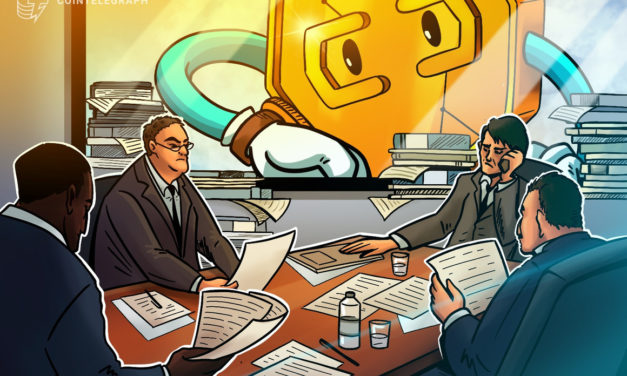Sony Music files trademark application for NFT-authenticated music
American music giant Sony Music Entertainment has signaled intentions to utilize non-fungible tokens (NFTs) after filing a trademark application covering music and artists under the Columbia Records logo. According to an Aug. 30 trademark application to the United States Patent and Trademark Office (USPTO) shared by trademark attorney Mike Kondoudis on Sept. 6, the application covers “audio and video recordings featuring live musical performances authenticated by NFTs.”#SonyMusic has filed a trademark application for the Columbia Records logo claiming plans to use it for:▶️ NFT Backed Media▶️ Music + Podcast Production▶️ Artist Management + Music distribution services..and more!#NFTs #Metaverse #Web3 #Columbiarecords #Pop #Rock #Hiphop pic.twitter.com/xY7kRMgo1m— Mike Kondoudis (@KondoudisLaw) September 6, 2022The application also covers marketing services, promotion, distribution, marketing, advertising, and online entertainment, including podcasts and audiovisual recordings.The new trademark application comes in the wake of several other Sony Music-backed NFT projects. In August, MakersPlace, an NFT market dedicated to digital art, secured $30 million in Series A financing from several notable companies, including Pantera Capital, Bessemer Venture Partners, Coinbase Ventures, and Sony Music Entertainment.March saw the music company partner with Solana-based NFT marketplace Snowcrash and fellow music behemoth Universal Music Group to release Bob Dylan and Miles Davis NFT collections at some point in 2022, with plans for more in the future.NFTs and the Metaverse are slowly becoming more prominent in the music and entertainment industry. MTV’s Video Music Awards on Aug. 29 heavily featured online and virtual performances, including Eminem and Snoop Dogg performing their new single in a Metaverse created by Yuga Labs, the same company behind the Bored Ape Yacht Club.Related: There’s more to NFTs than just PFPs — 5 ways nonfungible tokens will transform societyThe song “From the D to the LBC” was released in June, and features two Bored Ape Yacht Club avatars owned by Eminem and Snoop Dogg.MTV’s Video Music Awards also debuted a new award category, Best Metaverse Performance, which featured nominations for six different acts in its inaugural year, Ariana Grande, Justin Bieber, Charli XCX, Twenty One Pilots, BTS, and Blackpink, who eventually won.
Čítaj viac






